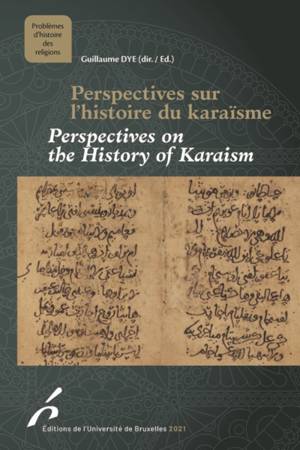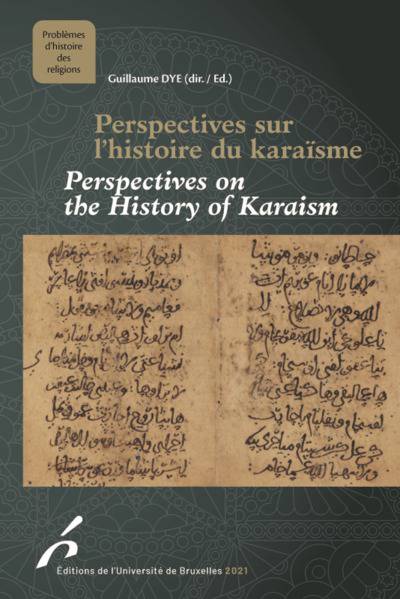
- Retrait gratuit dans votre magasin Club
- 7.000.000 titres dans notre catalogue
- Payer en toute sécurité
- Toujours un magasin près de chez vous
- Retrait gratuit dans votre magasin Club
- 7.000.0000 titres dans notre catalogue
- Payer en toute sécurité
- Toujours un magasin près de chez vous
Description
Perspectives sur l'histoire du karaïsme
Le karaïsme est un mouvement religieux juif qui apparaît au IXe siècle, en Iraq et en Palestine, en opposition au judaïsme rabbinique et à la notion de Torah orale. Ce courant important du judaïsme médiéval, présent aussi dans le monde byzantin et plus tard, à l'époque moderne, dans le monde ottoman, en Crimée et en Europe orientale, est un exemple remarquable de la complexité et de la variété du judaïsme.
Depuis trois décennies, le karaïsme est l'objet d'études novatrices qui ont considérablement renouvelé la compréhension de son histoire, mais qui restent mal connues hors du cercle des spécialistes. L'objectif de cet ouvrage est de fournir une dynamique nouvelle aux études karaïtes dans le monde francophone, en faisant dialoguer spécialistes du karaïsme et spécialistes d'autres branches des études juives : un tel dialogue se révèle particulièrement fructueux, non seulement pour analyser les débats, polémiques et développements à l'intérieur même du judaïsme, mais aussi pour comprendre l'inscription des diverses formes de judaïsmes dans leurs contextes sociaux, culturels et religieux.
Perspectives onthe History of Karaism
Karaism is a Jewish religious movement that emerged in the 9th century in Iraq and Palestine, opposing rabbinic Judaism and the notion of an oral Torah. This important trend of medieval Judaism, which was also found in the Byzantine world, and later, in modern times, in the Ottoman world, in Crimea, and in Eastern Europe, constitutes a remarkable example of the complexity and variety of Judaism.
For the past three decades, Karaism has been the subject of innovative studies that have considerably renewed our understanding of its history. It remains, however, little-known outside a small circle of specialists. The aim of this book is to provide a new dynamic to Karaite studies in the French-speaking world, by bringing together specialists in Karaism and specialists in other fields of Jewish studies : such a dialogue proves particularly fruitful, not only for analysing debates, polemics, and developments within Judaism itself, but also for understanding the inscription of various forms of Judaisms in their social, cultural, and religious contexts.
Spécifications
Parties prenantes
- Auteur(s) :
- Editeur:
Contenu
- Nombre de pages :
- 260
- Langue:
- Français, Anglais
Caractéristiques
- EAN:
- 9782800417929
- Date de parution :
- 19-05-22
- Format:
- Livre broché
- Dimensions :
- 160 mm x 240 mm
- Poids :
- 518 g

Les avis
Nous publions uniquement les avis qui respectent les conditions requises. Consultez nos conditions pour les avis.






